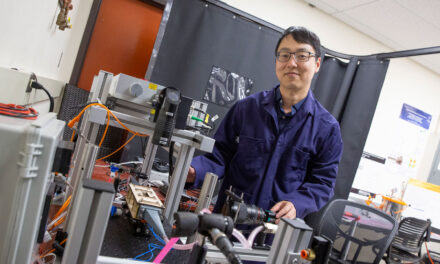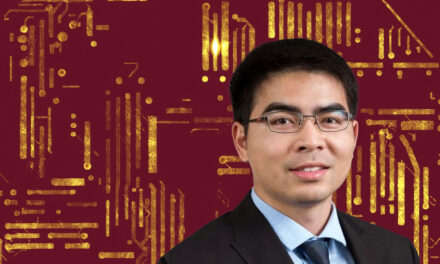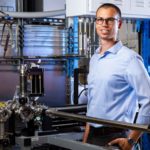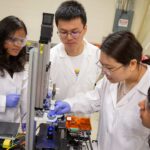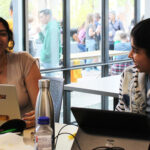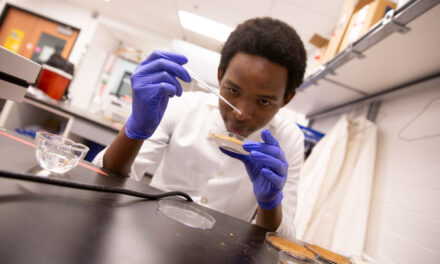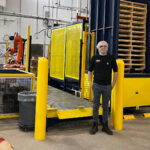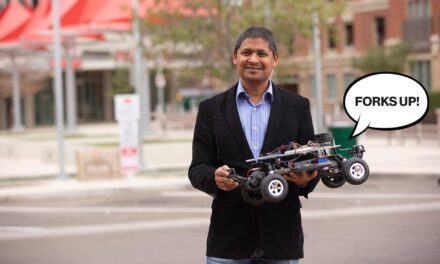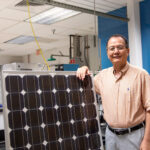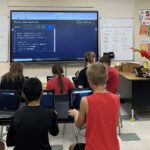
Technology advances earn international, state innovation awards
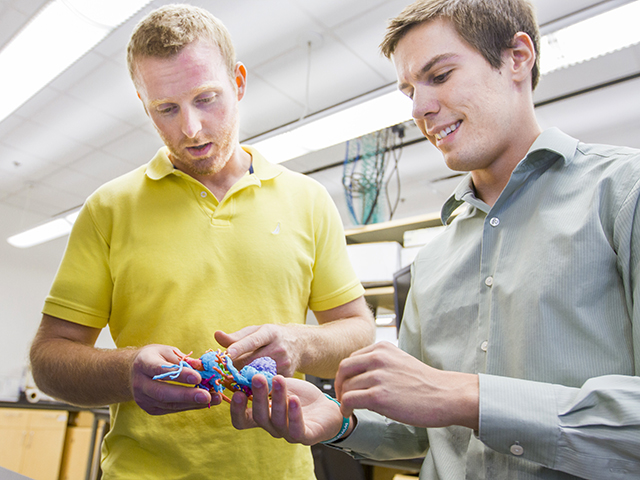
ASU engineer David Frakes and biomedical engineering doctoral student Justin Ryan led work in the the Image Processing Applications Lab that won an Arizona Innovator of the Year Award. Photographer: Jessica Hochreiter/ASU
Biomedical technology advances achieved by David Frakes and his Arizona State University research team have recently earned a World Technology Award in Health and Medicine, as well as one of the Arizona Governor’s Celebration of Innovation Awards.
In addition to Frakes’ state award, Sarah Galvin, an ASU freshman electrical engineering student, was presented one of four Future Innovators of the Year awards. Galvin was recognized for a research project she developed as a student at Corona del Sol High School in Tempe.
Frakes is an associate professor in the School of Biological and Health Systems Engineering and the School of Electrical, Computer and Energy Engineering.
Through his Imaging Processing Applications Lab, he has led development of technology that aids physicians in devising patient-specific plans for endovascular treatments. It is expected to have a significant impact on the success of insertions of neurovascular stents to improve patients’ recovery.
The new technique for enhancing preparation for the treatment of blood vessel problems is among recent accomplishments deemed to have “the greatest likely long-term significance” by the international panel of scientists, engineers and inventors who select winners of the annual World Technology Awards.
The technology has become the basis for a startup company, called Endovantage.
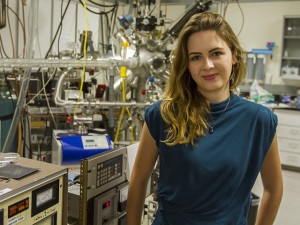
ASU freshman engineering student Sarah Galvin won a Future Innovator of the Year Award. Photographer: Jessica Hochreiter/ASU.
The state Celebration of Innovation Award recognizes the achievement of Frakes’ lab team in developing a cloud-based computer simulation platform enabling precise modeling of the conditions of patients with brain aneurysms.
The awards program is organized by the Arizona Technology Council in partnership with the Arizona Commerce Authority.
The modeling technology development is related to other biomedical projects that are bringing attention to Frakes’ work. Among them is the 3-D Cardiac Print Lab at Phoenix Children’s Hospital, which is being run under Frakes’ guidance by ASU biomedical engineering doctoral student Justin Ryan.
The lab produces 3-D prints of individual patients’ cardiovascular, respiratory and skeletal structures. The lab also provides physicians a novel virtual screening of the conditions of pediatric patients, helping surgeons ensure a proper fit of artificial hearts implanted into the patients.
The Future Innovators of the Year Award recognizes Galvin’s research, which involves experimentation with using combinations of various materials to make devices that could help pave the way for the next generation of electronics.
Earlier this year, the project earned her a first-place prize in the electrical and mechanical engineering category in the Intel International Science and Technology Fair for high school students. Galvin is continuing her research at ASU. Read more about her work.
Media Contact
Joe Kullman, [email protected]
480-965-8122
Ira A. Fulton Schools of Engineering


